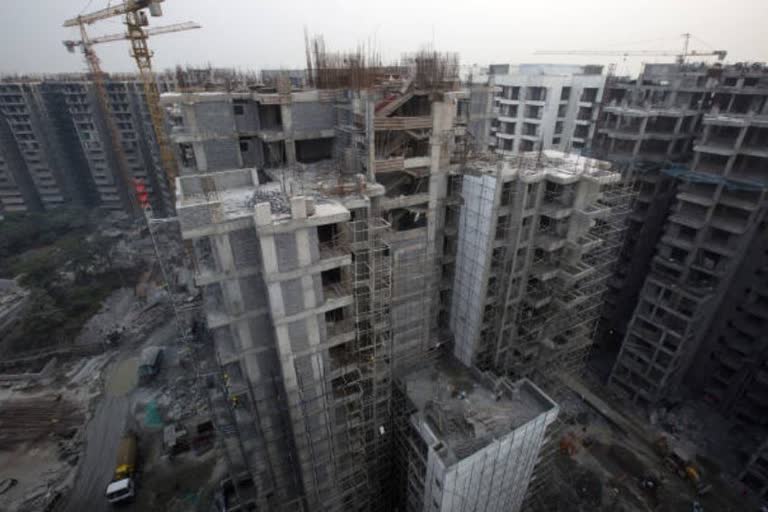New Delhi: The much-hailed accreditation as financial creditors to home buyers now comes with riders. Home buyers, willing to take the developer to an insolvency court, will now have to ensure that a minimum of 100 home buyers or 10 per cent of the total home buyers file for bankruptcy against the developer.
The government on Thursday tabled the Insolvency and Bankruptcy Code (Second Amendment) Bill, 2019, in the Lok Sabha, which among other amendments, also provides for the protection of buyers from criminal proceedings against previous promoters of the bankrupt firm.
"An application for initiating corporate insolvency resolution process shall be filed jointly by not less than 100 of such creditors in the same class or not less than 10 per cent of the total number of such creditors in the same class, whichever is less," the bill said, referring to the class of home buyers.
"Provided further that for financial creditors who are allottees under a real estate project, an application for initiating corporate insolvency resolution process shall be filed jointly by not less than 100 of such allottees under the same real estate project or not less than 10 per cent of the total number of such allottees under the same real estate project, whichever is less."
As per the bill, all the pending applications by home buyers against the developers, which have not been admitted will have to meet the new requirements within 30 days of the commencement of the Act, failing which the application shall be deemed to be withdrawn before its admission.
Read more:Sitharaman ranked 34th among world's most powerful women
In another interesting development, the insolvent companies will now be allowed to file for insolvency against another corporate debtor. This will enable promoters of companies facing insolvency to initiate similar proceedings against any entity that may have been responsible for its current state or otherwise.
Another significant move is the protection against criminal proceedings against the eventual buyers of a bankrupt company under investigation.
The decision will have a major impact on cases such as the Bhushan Power and Steel insolvency process whereby JSW Steel emerged the successful bidder, but its transaction was halted by the National Company Law Appellate Tribunal (NCLAT) after the Enforcement Directorate (ED) attached the properties of the bankrupt BPSL.
The NCLAT had in October put JSW Steel's Rs 19,700 crore payment to acquire Bhushan Power and Steel (BPSL) on hold and asked the ED to release BPSL's attached properties worth about Rs 4,000 crore. Last week, the NCLAT directed the ED to file an affidavit on developments related to the attachment of BPSL assets.
"Provided that if a prosecution had been instituted during the corporate insolvency resolution process against such corporate debtor, it shall stand discharged from the date of approval of the resolution plan subject to requirements of this sub-section having been fulfilled," the bill said.
It said that no action shall be taken against the property of the corporate debtor in relation to an offence committed prior to the commencement of the corporate insolvency resolution process of the corporate debtor, where such property is covered under a resolution plan approved by the Adjudicating Authority under section 31, which results in the change in control of the corporate debtor to a person, or sale of liquidation assets under the provisions of Chapter III of Part II of this Code to a person.
The bill also clarifies that a licence, permit, registration, quota, concession, clearances or a similar grant or right cannot be terminated or suspended during the moratorium period of a company or as long as the insolvency process continues.
